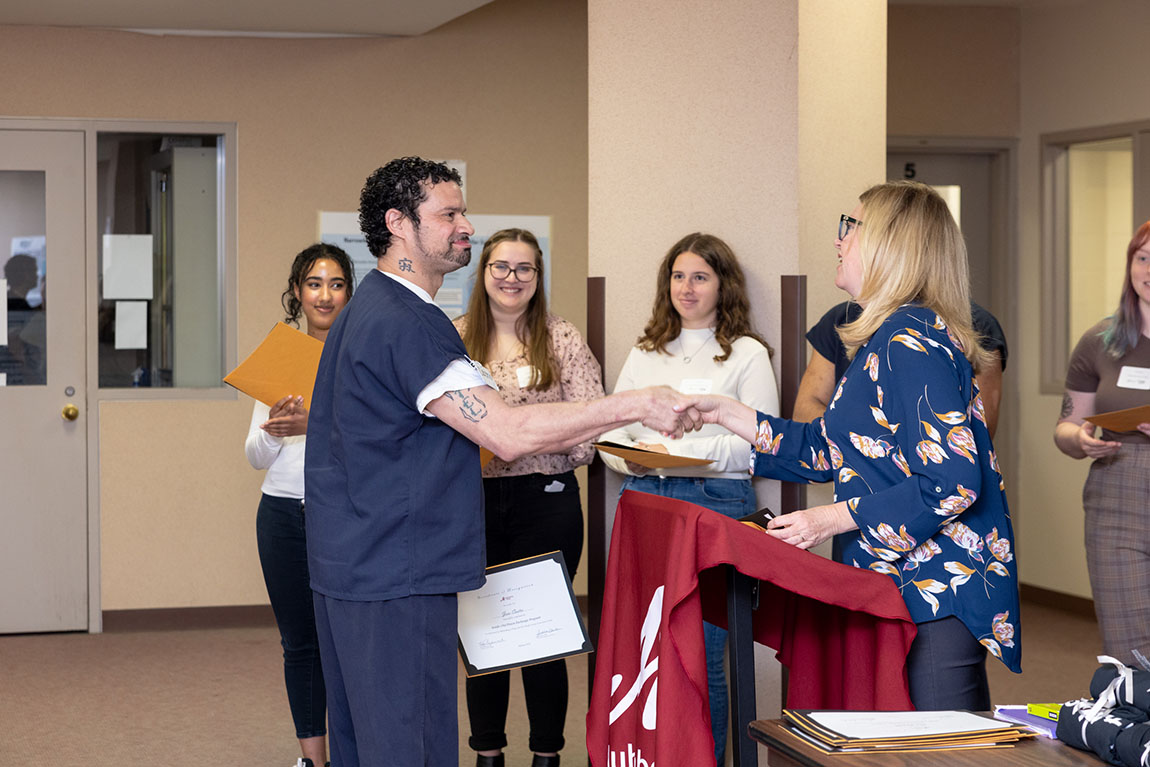Muhlenberg’s Inside-Out Course Holds Poster Presentation and Closing Ceremony
Students from the College and students who are incarcerated shared their group projects and received completion certificates to wrap up the popular and impactful course, which was held this semester for the first time since the start of the pandemic.By: Meghan Kita Tuesday, May 9, 2023 09:28 AM
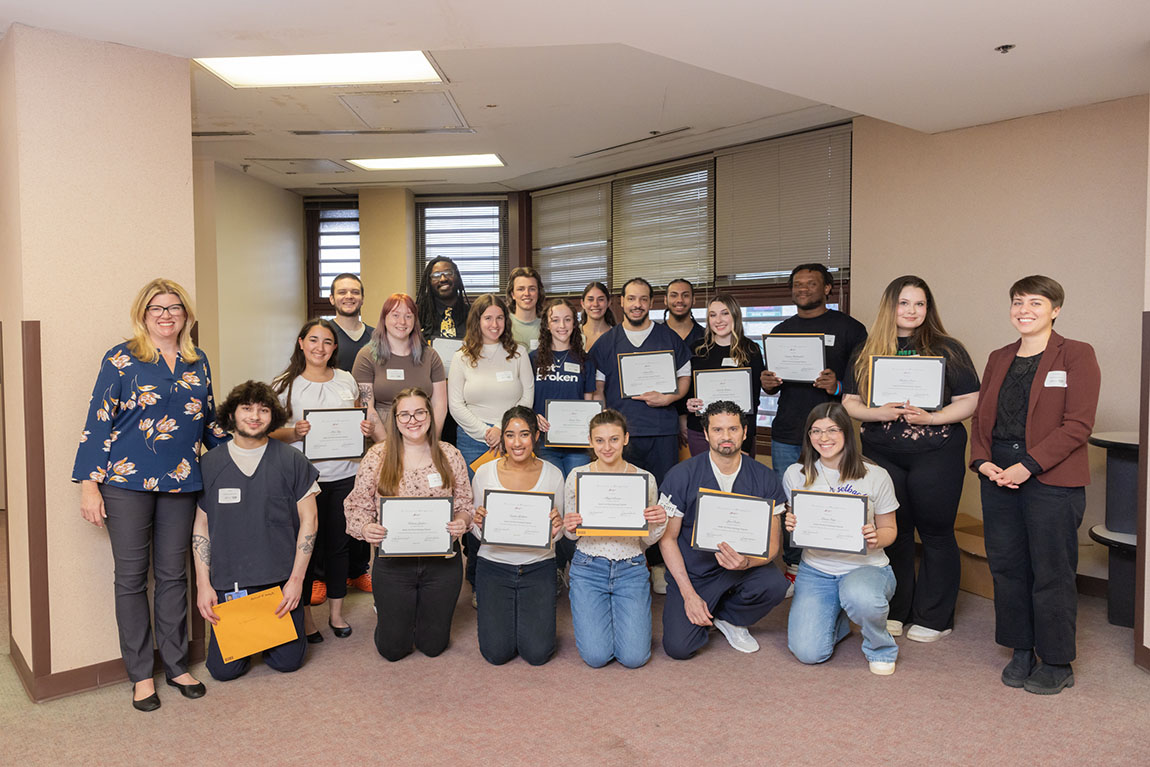 Most of the students in the 2023 Inside-Out class after they received their certificates of completion. Photos by Marco Calderon
Most of the students in the 2023 Inside-Out class after they received their certificates of completion. Photos by Marco CalderonOn April 27, the Lehigh County Jail in downtown Allentown hosted so many visitors it nearly ran out of locker space for their belongings. Some had been coming every Thursday for the entire semester as part of the College’s Inside-Out course, which brings together 15 Muhlenberg (“outside”) students and 15 “inside” students who are incarcerated. Many others — including members of the Muhlenberg and Lehigh Valley communities and the media — came to see the students’ group presentations and the class’s closing ceremony, held in the jail’s visiting area.
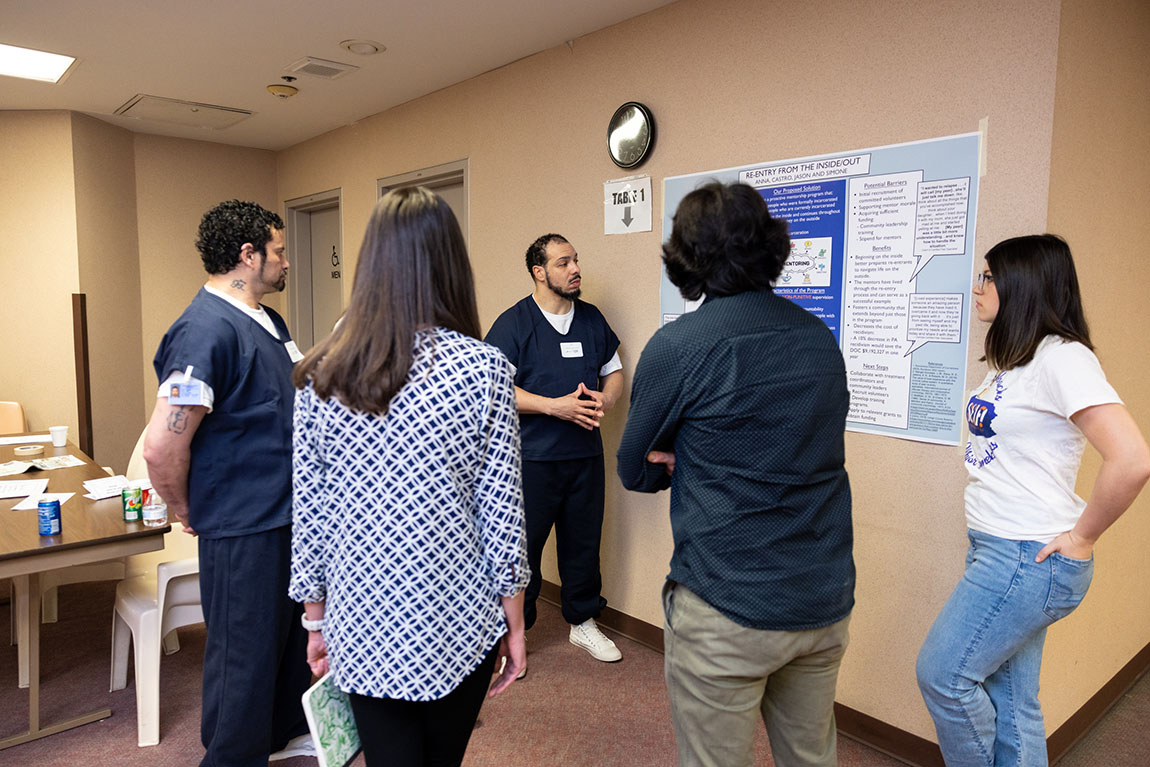
The Inside-Out Prison Exchange Program, which was started by a formerly incarcerated man and a Temple University professor in 1995, is a pedagogical model meant to bring outside and inside students together for sustained conversations working toward the goal of education. Muhlenberg’s course, which is co-facilitated by Professor of Psychology Kate Richmond ’00 and Community Engagement Librarian Jess Denke, deals specifically with mass incarceration in the United States. This semester was the fourth time the pair taught the class and the first time since the start of the pandemic.
The five groups, each a mix of inside and outside students, presented posters detailing problems and proposed solutions related to mass incarceration. For example, one group examined the “school-to-prison pipeline”: Students (especially Black and brown students) from under-resourced public schools make up a disproportionate percentage of those ensnared in the juvenile and criminal justice systems. The group’s proposed solution involved after-school programming, specifically for elementary school students, staffed by individuals who’d received trauma-informed training.
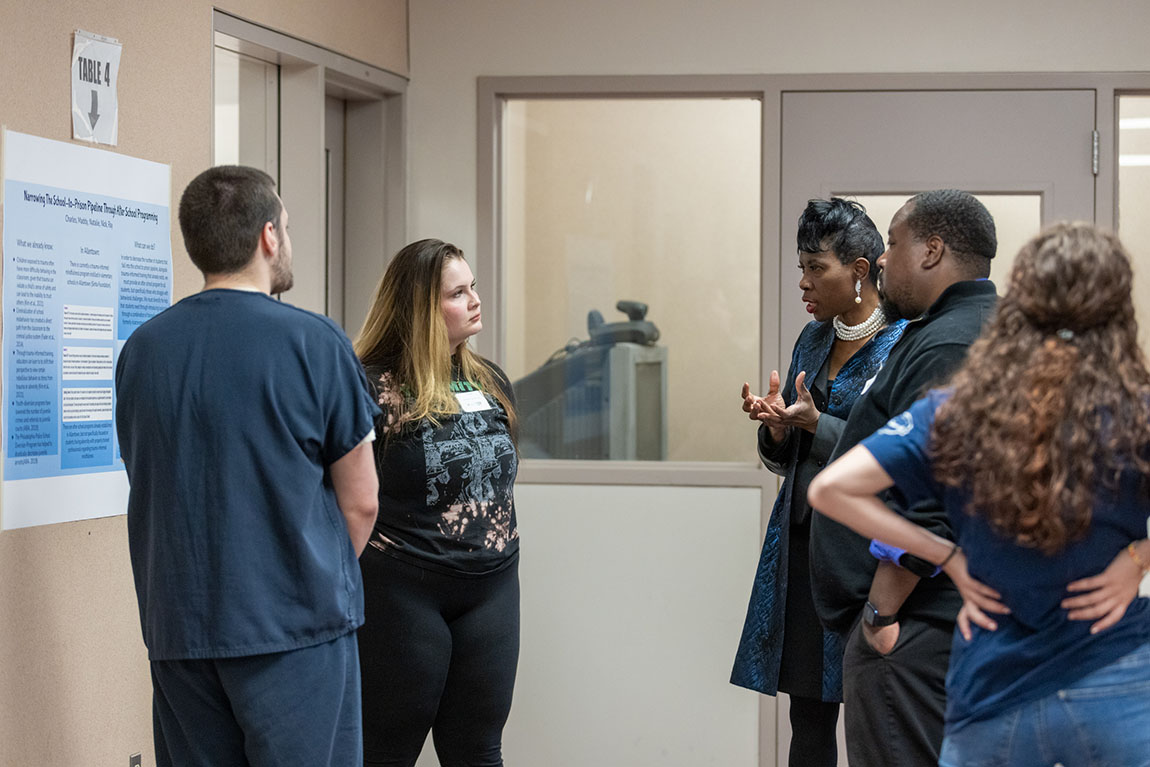
A critical part of the process for all the groups was researching the ongoing work surrounding these issues that’s taking place in the Lehigh Valley and engaging with agents of change within the local community. For example, the aforementioned group discovered that the Allentown School District does run a trauma-informed mindfulness program within its elementary schools but not as part of its after-school programming. ASD Superintendent Carol Birks and Board of School Director Patrick Palmer (pictured above, at right) attended the poster presentation and had a conversation with the students about their findings. “The real benefit of community-engaged classes comes when we can further the work of our community while expanding our idea of who belongs in that community,” Denke says.
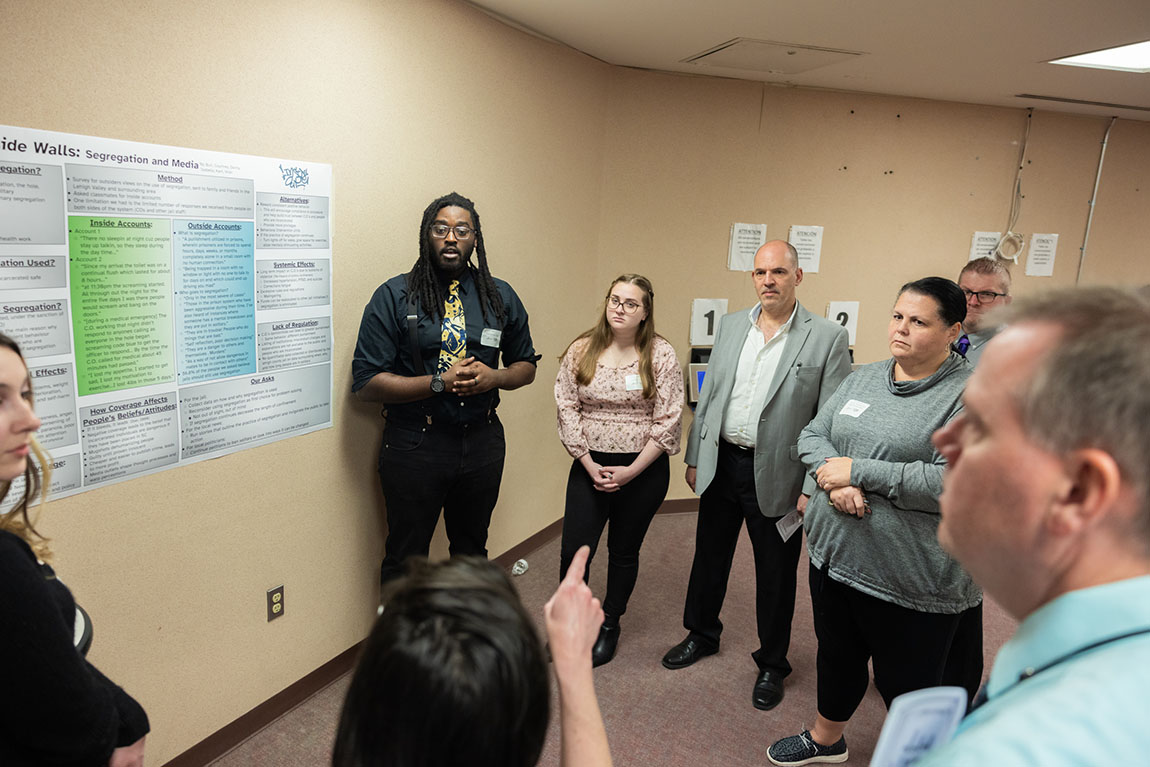
A closing ceremony followed the poster presentations. Students read excerpts from Bryan Stevenson’s Just Mercy: A Story of Justice and Redemption, a required reading for the course. Kani Green ’24 (pictured above, closest to poster), a psychology major, shared an original poem, and inside students John Vazquez and Joesiah Vazquez (pictured below) sang a song they wrote about the gratitude they felt for their professors and their experience in the class. Each student received a certificate, except for the six inside classmates who’d been released since the start of the class — Richmond read their names and the audience applauded, just the same.
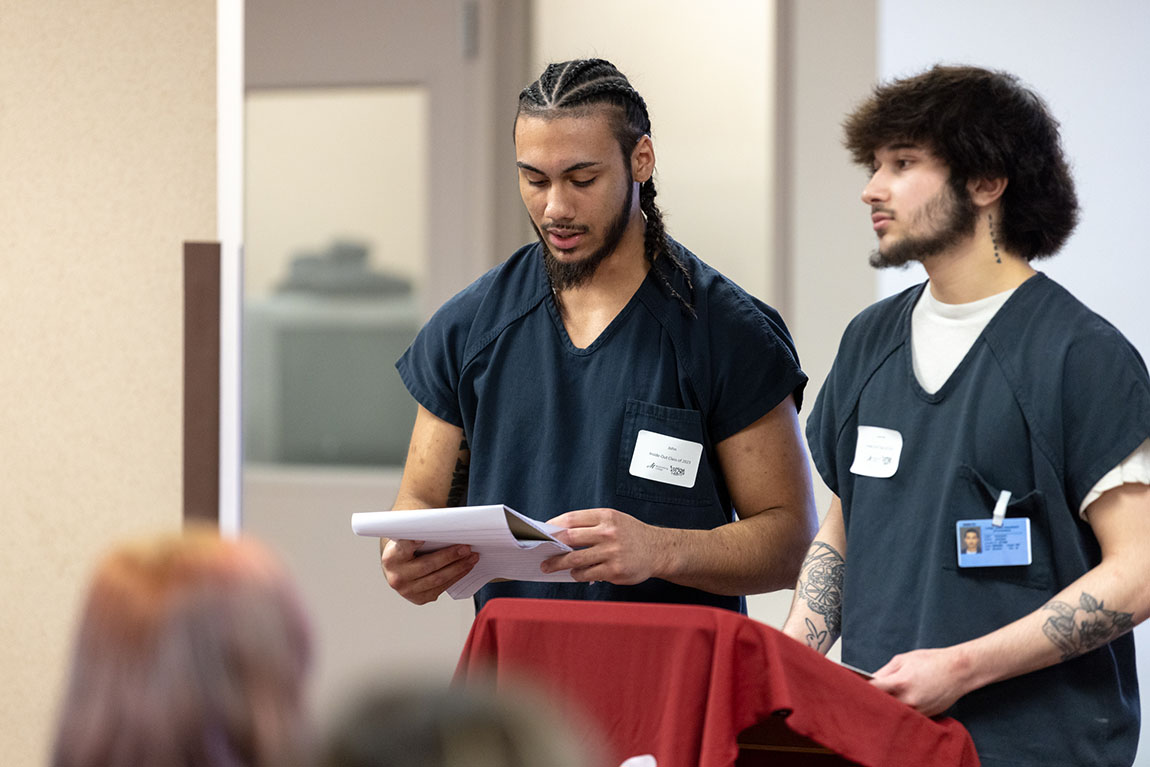
In her remarks, Richmond (pictured below) reflected on the importance of opportunities to build bridges between those who are incarcerated and those who are not, between those who work inside the mass incarceration system and those who are working to dismantle it and between the College and residents of Allentown and the Lehigh Valley: “If we stay siloed, we’ll never have the community we want,” she said at the event. “We need everyone in the room to have the information and the language to talk across difference.”
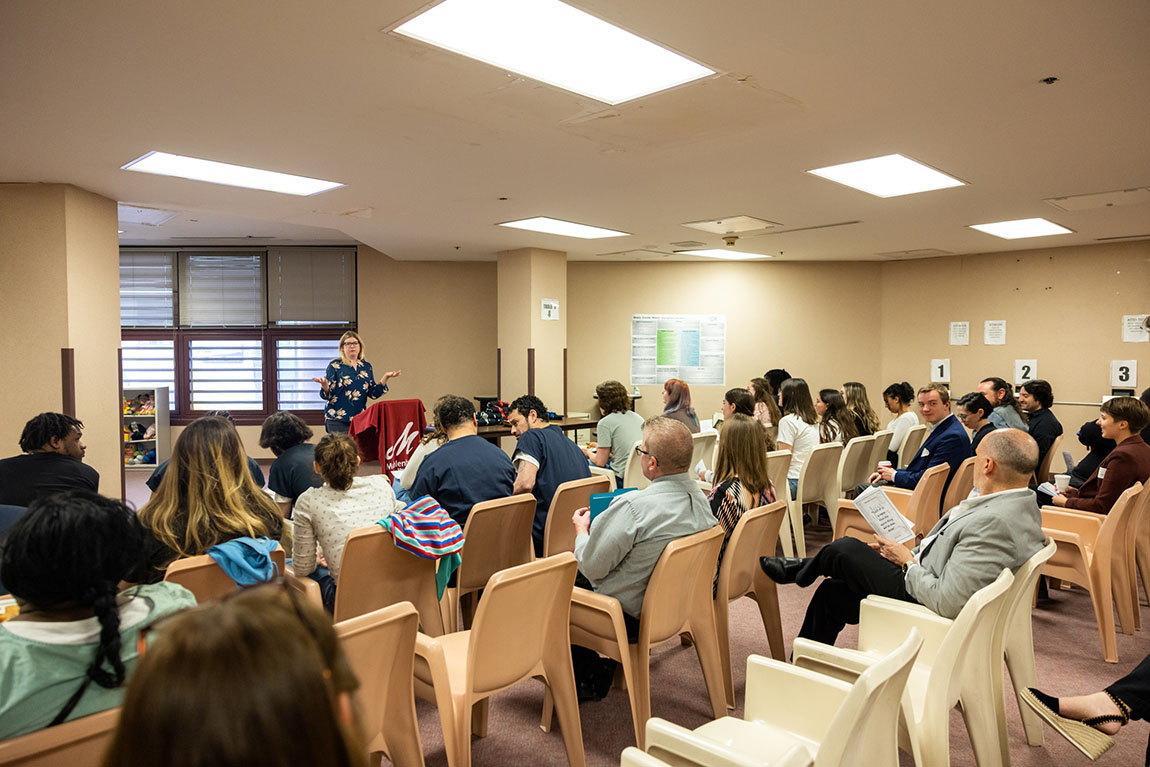
A $231,000 federal grant the College received last year will allow additional faculty to go through Inside-Out training. Nine, including faculty in disciplines as diverse as neuroscience, political science and dance, will do so this summer. The goal is to be able to offer two Inside-Out courses per semester by Spring 2024, with a wider variety of topics reflective of the faculty’s disciplinary interests.
Daniel Burden ’23, a predental biology major and mathematics minor who took the course this spring, found it deeply impactful: “I’ve never had any interaction with the carceral system before,” he says. “Now, having this direct relationship with 15 students on the inside, I know I'll be a better advocate for people on the inside. Questioning the system that placed them there is part of this class.”
